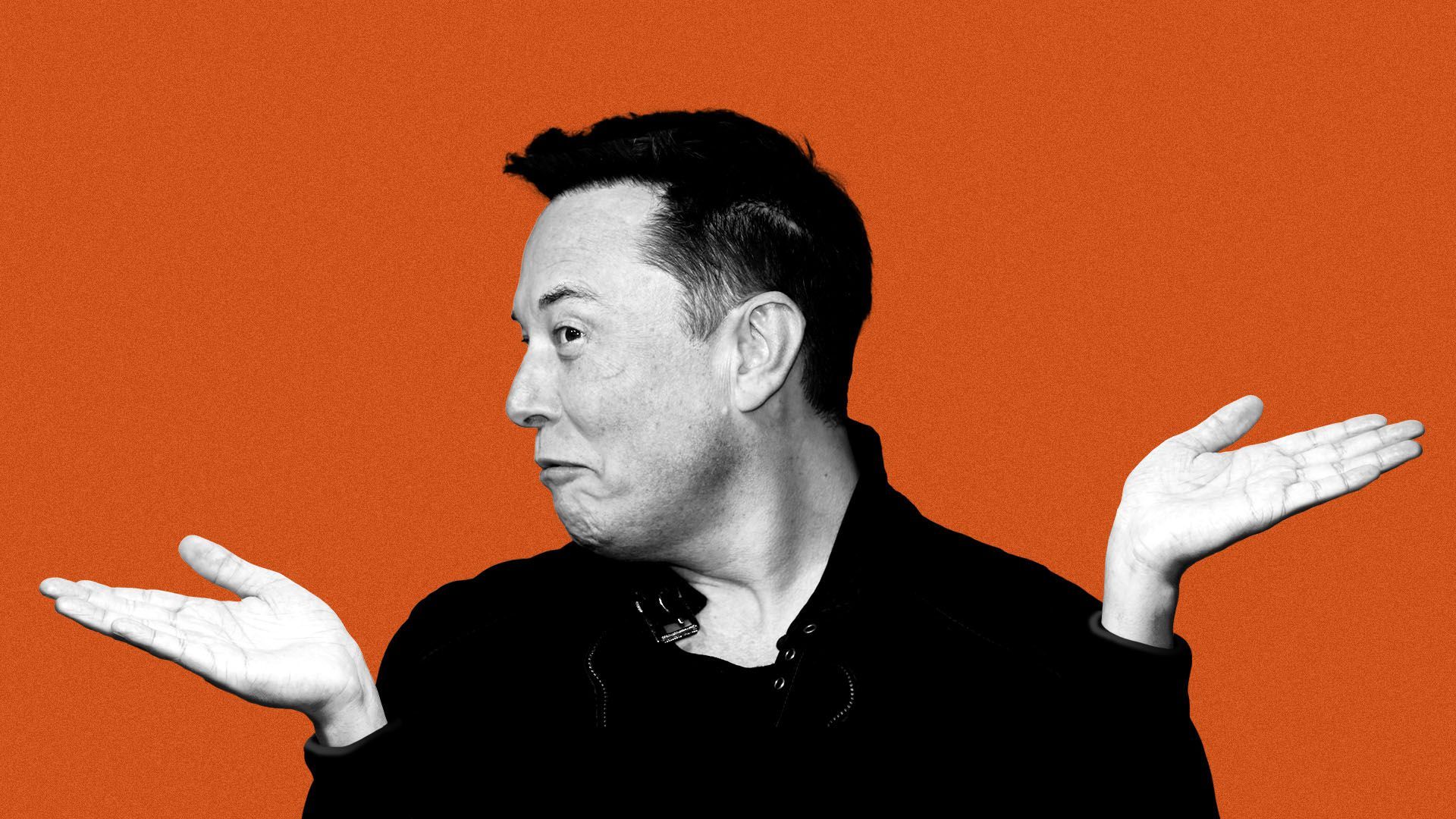
When Elon Musk says something, don’t assume he'll follow through — at least not right away.
Why it matters: As the richest person in the world and CEO of a company valued at over $1 trillion, Musk's words carry weight. They move markets and set expectations. But he seems to think out loud — typically on Twitter — unlike the usual buttoned-up, calculated approach taken by most CEOs.
- Driving the news: The Tesla and SpaceX CEO on Sunday backed out of a deal to join Twitter’s board after buying 9.2% of the company, thus preserving his ability to acquire a controlling stake, push for changes, or both.
Threat level: If Musk loses people’s trust, it could undercut his reputation as a Midas of sorts.
- On Tuesday he was joining Twitter’s board, and now he’s not.
- He infamously said in 2018 that he had “funding secured” to take Tesla private, but he had not — and the company remained publicly traded.
- He’s repeatedly promised that Tesla’s “full self-driving” feature was about to roll out, but its cars remain only partially automated.
What they're saying: “He’s building a say-anything-do-something-different brand identity,” Georgetown University business professor Peter Jaworski, an ethics expert, tells Axios. “In the long run, that’s almost always bad for the leader.”
Yes, but: Musk’s cult-like appeal is predicated in part on the fact that he isn’t hewing to anything resembling a company line. And thus he comes across as authentic to his fans.
- Who else would apparently smoke marijuana on Joe Rogan’s podcast?
The other side: Musk's defenders admit that he's often late in delivering the products he's promised — but, they say, he comes through in the end.
Our thought bubble: Authenticity is worth a lot in the social media age. But Musk is venturing into boy-who-cried-wolf territory.
- “If he keeps on going back and forth like this, that’s going to shatter trust,” Jaworski says.







